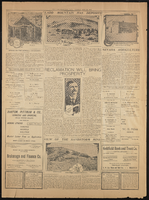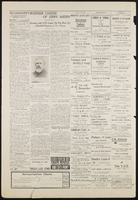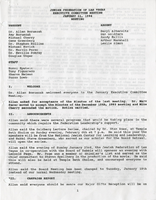Search the Special Collections and Archives Portal
Search Results
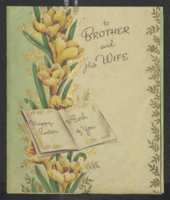
Mabel Hoggard: greeting cards (folder 3 of 3)
Date
Archival Collection
Description
Folder of materials from the Mabel Hoggard Papers (MS-00565) -- Personal papers file. This folder contains greeting cards, postcards, letters, and invitations from friends, family, and some organizations.
Mixed Content
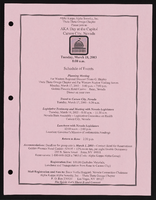
Alpha Kappa Alpha Sorority, Theta Theta Omega Chapter "AKA Day at the Capitol" schedule and supplementary resources
Date
Archival Collection
Description
From the Alpha Kappa Alpha Sorority, Incorporated, Theta Theta Omega Chapter Records (MS-01014) -- Chapter records file.
Text
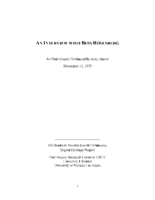
Transcript of interview with Bess Rosenberg by Jerry Masini, November 12, 1975
Date
Archival Collection
Description
Interview with Bess Rosenberg by Jerry Masini on November 12, 1975. In this interview, Rosenberg describes coming to Las Vegas in 1942, and the desert landscape. She gives an in-depth recollection of the first atomic test, and talks about different weather and the seasons in Las Vegas. Rosenberg describes several clubs and hotels around downtown and the recreation at Lake Mead and Mount Charleston.
Text
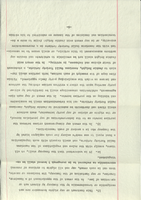
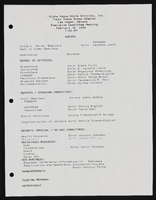
Alpha Kappa Alpha Sorority, Theta Theta Omega Chapter executive committee meeting agendas
Date
Archival Collection
Description
From the Alpha Kappa Alpha Sorority, Incorporated, Theta Theta Omega Chapter Records (MS-01014) -- Chapter records file.
Text

